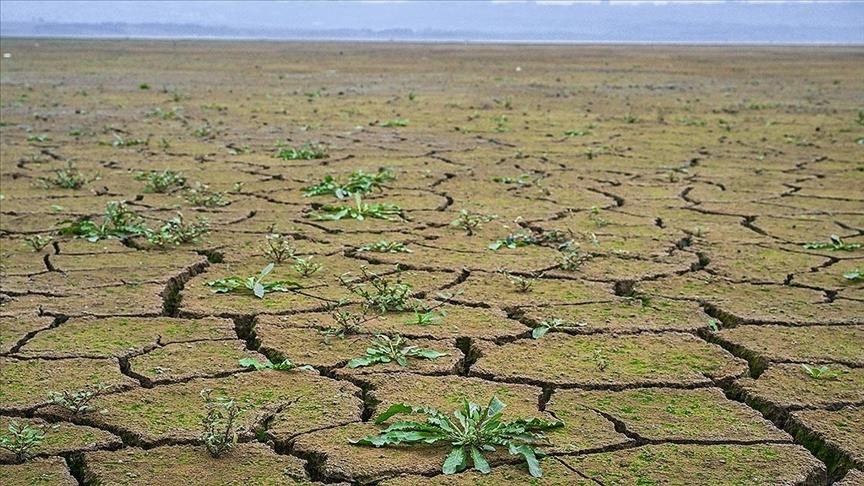

By Anadolu Agency
ISTANBUL
A World Wildlife Fund (WWF) official urged collective effort to combat climate and nature crises in the next five years as biodiversity is under great threat.
The WWF and the Zoological Society of London shared the 15th Living Planet Report, one of the world’s leading, science-based analyses, on the health of the planet and the impact of human activity.
The report, which is published every two years, revealed that the average size of monitored wildlife populations has shrunk by 73% over the past 50 years.
The data is based on almost 35,000 population trends from over 5,400 species between 1970 and 2020. The sharpest decline in wildlife populations was observed in Latin America and the Caribbean with 95%, followed by Africa with 76%, and Asia-Pacific regions with 60%.
Guner Ergun, conservation director of the WWF Türkiye, told Anadolu that the decline in wildlife populations is an early warning sign of possible losses in healthy ecosystems.
Stressing that the report contains striking results on the populations of vertebrate animal species, Ergun said the 73% decline in the average size of wildlife populations in just 50 years is “the most striking” of these results.
“These losses in ecosystems also pose great and significant threats to the future of humanity.
“The biggest declines were seen in freshwater populations. Monitoring studies show that freshwater populations have declined by 85%, followed by land ecosystems with a 69% decline and marine ecosystems with a 56% decline,” he added.
The WWF official warned that if the population decline continues, this would mean that ecosystem services will not be able to fully fulfill their tasks.
‘Our food is responsible for 27% of greenhouse gas emissions’
Emphasizing that food systems are one of the most important factors affecting biodiversity, Ergun said: “Our food is responsible for 27% of greenhouse gas emissions today and 70% of freshwater use.
“It is also responsible for the loss of 86% of living creatures such as birds and mammals due to the destruction and loss of habitats, that is, the loss of biodiversity.
“Therefore, recent practices such as climate-appropriate agriculture and agroecology, and restorative agriculture are trying to eliminate these damages.”
He said that global threshold points, such as the disappearance of rainforests in the Amazon or the mass bleaching of coral reefs, pose the risk of creating shock waves that transcend the borders of their environment and cause problems related to food security and livelihoods across the world.
Pollution threatens fish extinction
Ergun noted that Türkiye is one of the most important countries in its geography with its wetland diversity and large scale, notably in terms of hosting migratory bird species, but water loss and periodic drying out occur in wetlands due to threats such as overuse, pollution, unplanned construction, and climate change.
He added that one of the most important factors in the loss of healthy structures of wetlands is inefficient irrigation methods used in agriculture, and that urban, industrial, and agricultural pollution adversely affects the health of aquatic species and threatens the extinction of some fish species.
COP16, COP29 offer new opportunities to countries
Noting that the commitments made by countries and the actions taken on the ground are far behind what needs to be done to reach the 2030 targets, Ergun said that the UN’s COP16 conference on biodiversity, and the UN COP 29 offer a new opportunity for countries to take actions commensurate with the magnitude of the challenges they face.
“In terms of the 2030 targets, this five-year period is actually very important for us. We are entering a critical period, and all countries need to work collectively to ensure that the threshold points are not exceeded.
“To this end, we need to fully comply with the results to be obtained from the commitments” made at the Conference of the Parties. We need to utilize these five years very well both for our country and globally,” Ergun said.
The UN’s COP16 conference on biodiversity, the world’s biggest nature protection summit, officially began on Monday in the Colombian city of Cali.
COP29, the 29th annual UN Climate Change Conference, will bring together world leaders, negotiators, and environmental experts to assess progress in combating climate change and advancing the goals of the Paris Agreement target of limiting global warming to 1.5 C within reach.
COP29 will be held in the Azerbaijani capital Baku on Nov. 11-22.
We use cookies on our website to give you a better experience, improve performance, and for analytics. For more information, please see our Cookie Policy By clicking “Accept” you agree to our use of cookies.
Read More